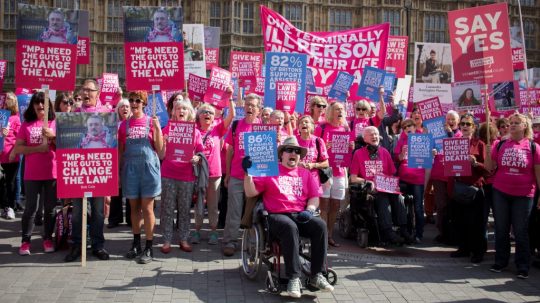Labour MP Laura Pidcock has called for the work capability assessment (WCA) to be scrapped in favour of kinder policies or risk a rising number of suicides.
Speaking in Westminister Hall on Wednesday, the North West Durham MP called for a major overhaul of the system which determines if a person can access employment and support allowance.
The system has faced swathes of criticism as a 30 billion pound cut to welfare means some disabled and terminally ill people are being deemed fit to work.
“The government has trodden all over the expectations of citizens that they will be looked after in their hour of need,” Pidcock said.
Real Life Tragedies

Credit: Pixabay
In some cases, like that of Stephen Smith, these unwell people end up fighting with the Department of Work and Pensions from their deathbed. In other cases, they see no other route and decide to take their own life.
“Literally taking money from people who are disabled, unwell or dying and what are the worst consequences of this system? The ultimate result of this brutality? Jodie Whiten took her life 15 days after the DWP stopped her benefits for missing a work capability assessment when she was seriously ill.
These are the real-life tragedies of a broken system.
Laura Pidcock, MP North West Durham
“These are the real-life tragedies of a broken system. They are not individual problems, they are systemic failings,” Pidcock said in her speech.
Being found fit to work under the Work Capability Assessment when they are not can also have an impact on a person’s financial wellbeing, as they may no longer be entitled to housing or council tax benefit which would “plunge a person into destitution with increasing debt, risk or eviction and untold stress,” she explained.
What’s The Alternative To The Work Capability Assessment?

Credit: Pexels
First and foremost, the MP insisted that the government needed to overhaul the attitude and atmosphere within the DWP – starting with approaching all claimants with trust.
“The culture permeating the DWP is one of disbelief which looks so cynically upon people who request help,” she said.
Pidcock added that face to face assessments were also a priority for the government to scrap, as too often people find it difficult to reach these appointments and face severe punishments if they miss them.
She explained: “One person got in touch with me to say that they had to sit in soaking wet clothes due to incontinence issues that they had in the waiting room of that assessment centre. Is this a system anyone here can really defend?”
The culture permeating the DWP is one of disbelief which looks so cynically upon people who request help.
Laura Pidcock, MP North West Durham
The application form and questions asked in an assessment also need to be made less rigid, Pidcock stressed, because they cannot capture the “fluctuating nature of physical and mental unwellness or disability”.
“People often describe how they feel punished for telling the truth. One day you might be in the depths of despair, the pain from your condition may be unbearable. The next day you might be able to have a laugh over a cup of tea with a loved one,” Pidcock recounted.
“The question is should you lie about that laughter or feel shame about it because you might get points deducted? Does the laughter render meaningless the pain that you felt from the day before. Fundamentally does it have any bearing on your ability to work?”
The deprivatisation of the system, placing medically qualified people in assessment positions and recording of assessments were also changes recommended by the MP.







